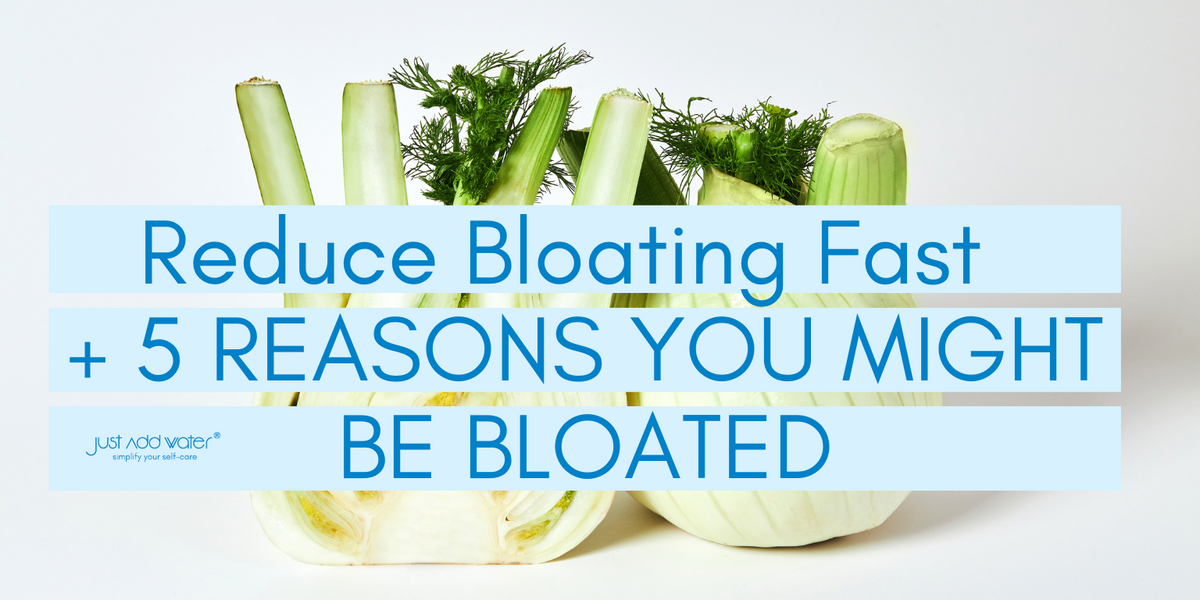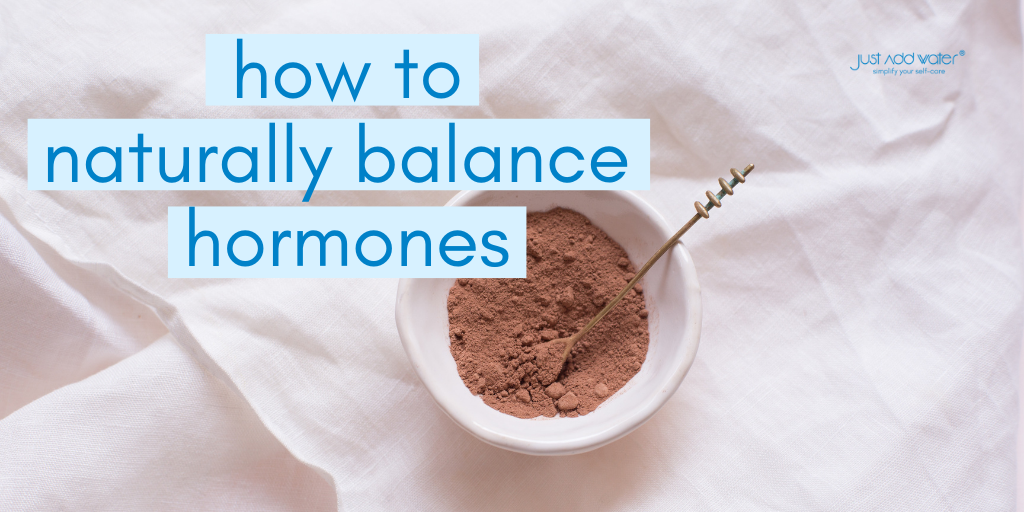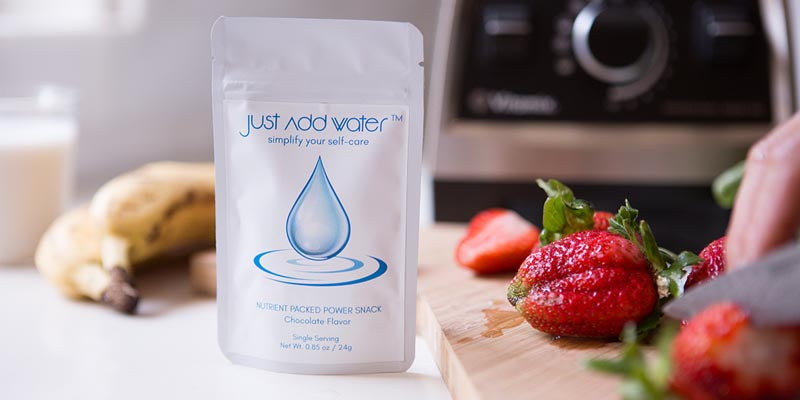EVERYTHING YOU NEED TO KNOW ABOUT HEALING YOUR GUT
You may have heard that the root of all disease is your gut. That’s right, health begins in your gut. Many of today’s symptoms, both severe and moderate, can be resolved by healing your gut. But, what does healing your gut even mean? Healing your gut sounds like a complex objective, but with a few simple changes to your diet, mindfulness practices, and evaluating your environment, you can make drastic changes in the way you feel now and the way you feel for years to come.
SYMPTOMS OF POOR GUT HEALTH
It’s been said that the gut is the body’s second brain - and when you have an unhealthy gut, it can take a toll on your entire body. Many factors play a major role in your gut health, such as high stress levels, too little sleep, eating processed and high-sugar foods, and taking certain antibiotics can all damage your gut microbiome. This in turn may affect other areas of our health, such as the brain, heart, immune system, weight, skin health, hormone levels, ability to absorb nutrients, and even in some cases, cancer.
There are a number of ways an unhealthy gut may manifest itself. Here are a few common signs of an unhealthy gut :
- A high sugar diet - a diet high in processed foods and added sugars can decrease the amount of healthy bacteria in your gut. This imbalance can cause increased sugar cravings, which in turn, is proven to damage your gut and increase inflammation in the body.
- Fatigue and sleep disturbances - an unhealthy gut may lead to sleep disturbances or chronic fatigue. All body's systems are interconnected, and while serotonin is activated in the brain, the majority of the body’s serotonin, a hormone that affects mood and sleep, is produced in the gut. So gut damage can impair your ability to sleep, which may lead you to feeling exhausted and fatigued on the daily. In fact, there have been new studies on the role sleep deprivation plays in longevity, and there are some interesting links to poor gut health as the root cause.
- Upset stomach - Everyone gets an upset stomach from time to time, whether from eating foods that cause gas, menstrual cramps, or a passing virus. However, persistent stomach pain or disturbances, such as, bloating, gas, heartburn, diarrhea, and constipation can all be signs of an unhealthy gut. While this can be somewhat connected to the foods you eat, it’s more due to the imbalance in your gut.
- Skin irritation - We’ve discussed the gut-brain axis, but have you heard of the gut-skin axis? Your skin has a microbiome all it’s own! Your gut’s microbiome and your skin’s microbiome are both highly responsible for your immune health and for important neuroendocrine balance. Many skin conditions are directly related to imbalance of the skin’s microbiome. For example, acne is now usually associated with a distinct gut microbiome where there is a decrease in firmicutes and an increase in bacteroides. It is also well studied that taking probiotics can alleviate the symptoms of atopic dermatitis and dandruff. Unhealthy bacteria in your gut does not only affect you internally, but externally as well. The gut-skin axis and inflammatory immune response can be healed through dietary and hygiene changes. Inflammation in the gut caused by a poor diet or food allergies may cause increased “leaking” of certain proteins out into the body, which can turn into irritation of the skin such as itching skin, acne or eczema. As this is a two-way axis, the health of your skin affects your gut health as well. An impaired skin barrier may be the root cause of food allergies, and your body’s vitamin D levels which are very important to certain healthy gut bacteria.
- Unintentional weight changes - Gaining or losing weight without making diet or exercise changes may be a sign of an unhealthy gut. An imbalanced gut can impair your body's ability to absorb nutrients, regulate blood sugar, and store fat which can lead to weight gain or weight loss.
Take this quiz to find out if you should focus on improving the diversity and strength of good bacteria in your gut. https://3yhlq6fbb25.typeform.com/guthealthquiz
For more info on this topic check out this blog post, "HOW PROBIOTICS & PREBIOTICS WORK TOGETHER".
WHAT IS LEAKY GUT?
We know now that our food choices and lifestyle choices can be a root cause of illness, low energy, poor immune system function, skin diseases, mental disorders, and hormonal imbalances. Many aspects of our modern lifestyle, like the typical American processed-food diet, are harmful to our health despite the advances they’ve brought to society. As your intestinal barrier gets weaker and “leakier” it can make you more susceptible to food intolerances, autoimmune disease, and chronic illnesses.
So what is “leaky gut” first of all? Leaky gut is one of the biggest causes of damaging inflammation in the body. Your intestinal lining isn’t supposed to be 100% impenetrable, it is meant to be somewhat passable, but large cracks and holes can occur that cause health issues. You have about 4,000 square feet of intestinal lining that forms a tight barrier to prevent partially digested foods, toxins, and bugs from penetrating and getting absorbed into your bloodstream. That wall gets weakened through processed food, sugar, saturated fat, alcohol, drugs, stress, chemicals, heavy metals and toxins. This dysbiosis of the gut is usually caused by either an overgrowth of bad bacteria, high yeast levels, not enough good bacteria, an inflammatory diet, stress, and frequent use of antibiotics. This leak of inflammatory chemicals into your body causes inflammation, most frequently in the joints until the lining is repaired.
Let’s talk about a few of the things other than a poor diet that can negatively affect your microbiome.
- Drugs: Antibiotics have been around since 1939. That is not that long ago in the grand scheme of medical history in the US. They began to be offered as a prescription heavily in the 50’s and 60’s without much investigation on what the long-term effects were on the body. We are just now beginning to understand the way antibiotics affect our microbiome. Non-Steroidal Anti-Inflammatory Drugs like Ibuprofen or Aspirin wear away the lining of your intestines, reduce the good bacteria in your gut and change gut motility. Every time you take one for a headache, a hangover, or a muscle aches, you might need to consider balancing the damage done with extra gut-healing help like getting your daily pack of Just Add Water!
- Toxins: There are many toxins in the environment that affect our health. From our immune system, to our endocrine system, to our nervous system. The main toxins weakening gut-health are the chemicals on food, called pesticides, and the antibacterials in our household products. Antibacterials, which are designed to kill bacteria, can wipe out your good bacteria as well. Non-organic food is sprayed with a multitude of chemicals created to ward off pests or insects, fungi, and weeds. Even if you scrub your fruits and veggies, the chemicals have been absorbed into the crop.
- Stress: Just about all sense of normalcy was flipped on its axis this past year, and as a result daily stress has been on another level. The effects of Covid-19 have ranged from depression, to actually contracting the virus and becoming ill, to losing loved ones, to losing jobs and businesses, and then for many people - being completely alone. First of all, stress weakens the immune system through a lack of sleep, inflammation, and high levels of cortisol in the body. Stress also slows down the digestive process, which can be confusing to your body as it releases digestive juices. We are beginning to understand the fascinating signaling between the gut and brain through the vagus nerve and how the two impact overall health. This back and forth network connection of 500 million neurons, chemicals and hormones is why we call our gut our “second brain”. Stress, depression, and even positive thinking can change the bacteria population and diversity in the gut as well as the behavior of both good and bad bacteria. These mental states also may lead you to reach for certain less healthy foods, or overeat, which can be harmful to your gut bacteria as well.
Signs You Have Leaky Gut:
-
Digestive issues, gas, bloating, diarrhea, or irritable bowel syndrome (IBS)
-
Food allergies or food sensitivities
-
Brain fog, difficulty concentrating
-
Depression, anxiety
-
Skin issues such as acne, rosacea, or eczema
-
Asthma or Seasonal allergies
-
Hormonal imbalances, Irregular periods, PMS, or PCOS
-
Autoimmune disease - Rheumatoid arthritis, Hashimoto’s thyroiditis, lupus, psoriasis, or celiac disease
-
Chronic fatigue or fibromyalgia
GUT HEALTH AND NUTRITION
How the gut microbiota plays a role in food sensitivities:
Having a food sensitivity can be life-altering. Avoiding a particular food or food component can be challenging - given that one fifth of the population will be affected by food sensitivities in their lifetime, discovering alternatives to help manage them is necessary. A food sensitivity is when your immune system overreacts to a food or chemical and causes inflammatory chemicals to be released. Food sensitivities include food allergies, t-cell mediated sensitivities like coeliac disease. You can develop a food sensitivity at any time in your life. In coeliac disease, for instance, certain bacteria in the gut are tasked with breaking down the protein, gluten, and can either increase or decrease its toxicity. Simple ways to keep your gut microbiota healthy include maintaining a healthy diet with enough fruits, vegetables, fermented foods, and probiotic rich foods.

How to heal with nutrition:
Focus on gut-healing supplements like herbal antimicrobials and l-glutamine, a nutrient-dense plant-based diet, probiotics & prebiotics, and reducing stress.
Probiotics & Prebiotics:
Probiotics promote the growth of “good bacteria.” and prebiotics are the fiber foods which feed bacteria. Focusing on whole foods that are rich in probiotics and prebiotics can help with your weight-loss goals and optimize many elements of your overall health.
GUT HEALTH AND STRESS

Yes, emotions and thoughts can disrupt your gut and cause dysbiosis. From acid reflux to IBS, chronic stress can cause a physical response from your gut. Your brain and gut can both cause inflammation in your body, which harm your overall health. Melatonin and probiotics are two supplements that can help balance this disruption in your gut-brain axis.
Gut brain connection - Most of your serotonin is produced in the gut! If your microbiome is full of bad organisms (feeding on sugar from processed foods, fried food, and high fat dairy) then it is going to send unhealthy signals to your brain. Sticking to whole foods and having a high-quality probiotic / prebiotic supplement, like Just Add Water, can help to re-balance your gut and improve your mental health.
Focus on these foods:
These nutrients and foods help with focus, serotonin production, decrease symptoms of depression and anxiety in many cases, and help balance mood! To heal leaky gut, choose foods that are rich in polyphenols, bioflavonoids, and fiber. This will help increase the good bacteria in your gut that make short-chain fatty acids and heal the gut lining.
- fruits and vegetables
- foods rich in omega-3 fatty acids
- dark green leafy vegetables in particular are brain protective
- nuts, seeds and legumes, such as beans and lentils
- Just Add Water is rich in essential nutrients like antioxidants, vitamins, minerals, protein, and essential fatty acids for brain health
Neurochemicals:
Many of your neurochemicals are actually produced in your gut, which is another reason we call the gut the "second brain". In fact, there is a chain of 100 million neurons that run along the walls of a tube through your digestive system that is called the enteric nervous system. As you're digesting food, the nerves in your gut send signals to your brain several ways.
- Microbes get into your blood vessels and ride directly to the brain.
- Bacteria signal neuropod cells in your gut lining to notify the vagus nerve which signals the brain.
- Bacteria activate cells in the gut lining called enteroendocrine cells which release hormones throughout the body.
- Gut bacteria influence your immune system and inflammation response, which affects the brain.
From the majority of your calming hormone, serotonin, being produced in the gut, to finding out that most of your gut bacteria produce neurotransmitters, there has been a flux of research on just how the health of your microbiome affects your mood. How amazing is it that scientists discovered that people who suffer from depression are missing two bacteria in their gut microbiome called, Coprococcus and Dialister. Many studies also show that depression is linked to inflammation, and we know that the wrong mix of bacteria in the gut leads to increased levels of inflammation in the body. Improve your gut health with more diverse, beneficial bacteria by drinking Just Add Water® daily! Learn more about our probiotic and prebiotic--rich, chocolate smoothie.
GUT HEALTH AND ENVIRONMENT
Despite the powerful roles gut microbiomes play in our bodies, they are very susceptible to harm from external influences such as environmental toxins.
- Avoid these toxic chemicals daily:
- Triclosan- found in personal care products such as antibacterial soap, mouthwash, toothpaste, and deodorant, is easily absorbed into the skin and alters microbes in the gastrointestinal tract. These alterations impair the immune-regulation activities in your gut and can cause allergies such as eczema.
- Pesticides
- BPA
- Heavy metals
- Your environment could be causing you stress. People seem to know instinctively that getting out in nature is a good thing, and it makes sense : as a species we developed hand in hand with nature. In fact, we’ve only lived indoors for a tiny part of our existence.
4 Gut-Focused Reasons To Spend More Time Outdoors:
- Lower stress- Being outside in nature is naturally calming, and is good for your microbiome. When you are stressed out, the flow of blood in your body becomes restricted, including your digestive system, which is where your gut microbiome lives - this is why stress is often associated with gas and bloating. Stress also reduces the number of good bacteria in your gut, creating a space for bad bacteria to grow.
- Better immunity- Your microbiome and your immune system also have a close relationship. Since 80% of your immune system is located in your gut, the healthier the gut microbiome is, the better your immunity tends to be.
- Increased microbial diversity- One of the easiest ways to naturally increase your microbial diversity is simply by being around different types of bacteria, and being outside gives you exposure to all sorts of microbes that can benefit your microbiome.
- Movement-supported microbial health - You already know exercise is good for your body as a whole - it supports healthy weight, blood flow, and can improve your mood, and even help support your ideal immunity. But did you know it's good for your gut too? Exercise increases the population of beneficial bacteria in your gastrointestinal tract by up to 40%.
QUICK PROTOCOL FOR HEALING YOUR GUT
1. Eliminate inflammatory foods for two weeks, such as:
- Sugar and high-fructose corn syrup.
- Refined carbohydrates
- Excessive alcohol
- Processed meat
- Fried foods
2. Start to reduce use of toxic products, such as:
- Bleach
- Certain cosmetics (check your labels!)
- Ammonia
- Air fresheners
Leave a comment
Comments will be approved before showing up.
Also in Wellness & Nutrition

Reduce Bloating Fast + 5 REASONS YOU MIGHT BE BLOATED

Healing Cellular Damage With Antioxidant Power

HOW TO NATURALLY BALANCE YOUR HORMONES
In this blog, we’re going to define hormonal imbalance, identify the symptoms, and discover the natural options to bring your body back into flow! A nutritious diet and other healthy lifestyle habits may help improve your hormonal health and allow you to feel and perform at your best.




